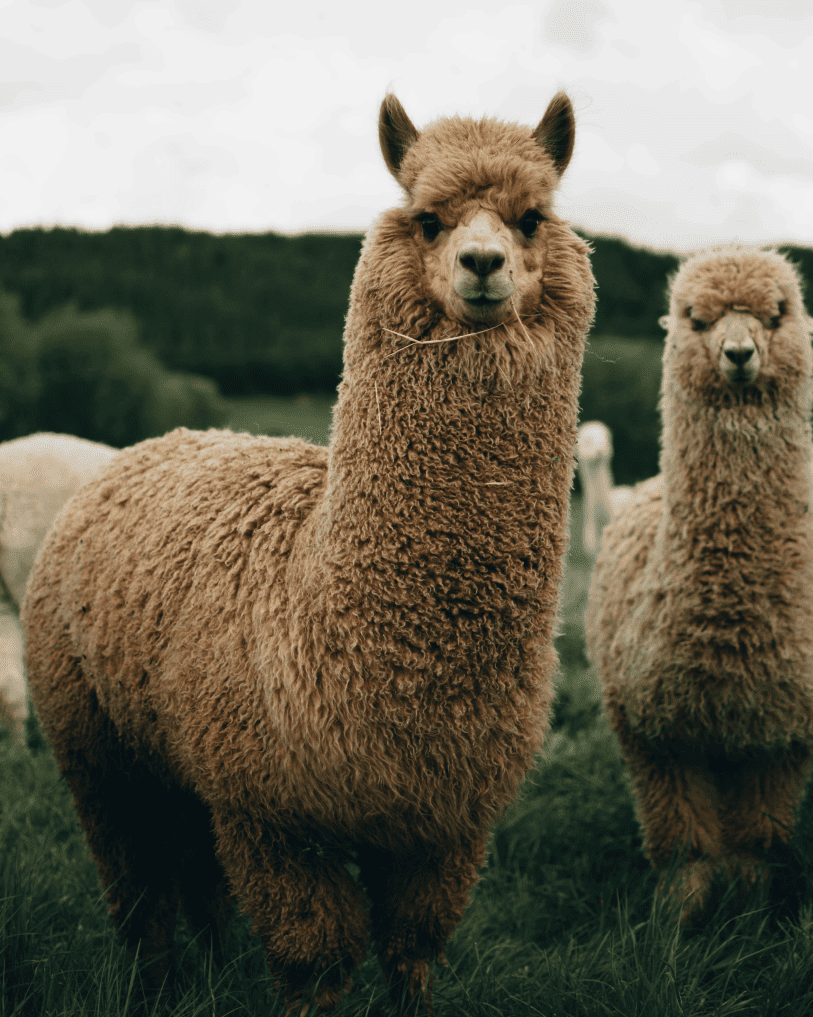The alpaca is a domesticated species of the South American camelid, known for its soft, luxurious fleece. Native to the Andes Mountains, alpacas have been bred for thousands of years by indigenous peoples for their wool, which is prized for its warmth, durability, and hypoallergenic properties. These gentle and sociable animals are smaller than their llama relatives, standing about 90 cm at the shoulder and weighing between 55 and 65 kilograms.
Alpacas are herbivores, grazing primarily on grasses and hay. They have a unique digestive system with three stomach compartments, which allows them to efficiently process tough, fibrous plants. Their low-impact grazing habits make them environmentally friendly livestock, as they do not overgraze or damage the soil.
Social by nature, alpacas live in herds and communicate through a variety of vocalizations and body language. They are known for their curious and gentle temperament, which makes them popular in agritourism and therapy programs. Alpacas are shorn once a year, yielding several pounds of fleece that can be spun into yarn or used for textiles.
Alpacas thrive in cold, high-altitude environments but are adaptable to other climates with proper care. Their popularity has grown worldwide, contributing to sustainable farming practices and cultural preservation in their native regions.
31P6V+H9P, Aurabandha, Chhattisgarh 494821, India [email protected]




